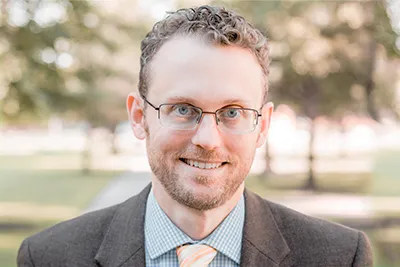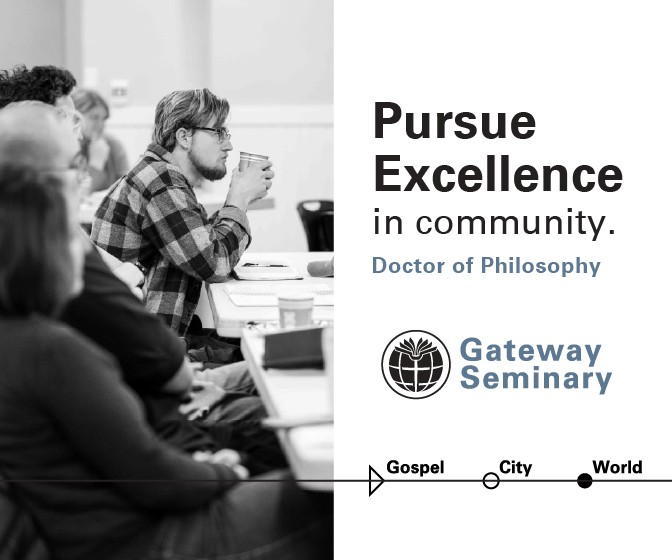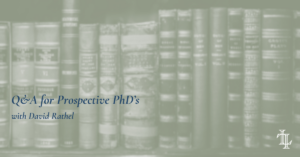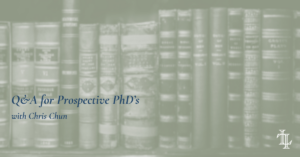I confess that much of my theological method has developed from the necessity of practicing the discipline of theology in the church, in my academic writing, and, especially, in the classroom. In my years in theological education, I have certainly read texts on theological method, but usually I find such texts of only indirect ecclesial relevance, and rarely are they accessible enough to be given to my undergraduate students. For better or worse, my methodology is one cobbled together in practice, perhaps summarized by the popular Latin American goal of theology en lo cotidiano (in the day-to-day).[1] In short, this article will answer one question: What does it look like for me to do theology in the classroom? Since teaching theology also patterns for students a method of doing theology, this question may also be phrased as follows: What features of theological method do I hope to pass on to my students?
1. The Necessity and Shape of Humility
Theological method forged in the classroom must begin from a posture of humility. Those who have taught theology can easily recall students who were boldly certain in their (clearly mistaken) theological convictions. One student might bravely answer one of my questions by explaining that God created Jesus, his perfect Son. Another might casually remark in class that those who deny a literal 24-hour interpretation of the days of Genesis have rejected the Bible. In such contexts, it simply will not do to call the first student a heretic or the second too sectarian. Such a response would either shut down future desire to learn (or at least to answer questions), or it will make an enemy out of a student. It is better to remember that students do not enter the classroom a tabula rasa – they have reasons for their claims, however wrong these reasons may be. Therefore, it is far better to consider two strategies. The first would ask a student to provide evidence for why they believe that their claim is true, and then to evaluate the evidence. A second strategy asks such a student to explain what they mean by their statement. Such tools open the way for further discussion and learning, while also revealing important aspects of theological method.
Often theological claims are not matters of certainty but are better interpreted as claims of varying degrees of likelihood or plausibility under the restrictions of available evidence. We do, after all, “see through a glass darkly” (1 Cor. 13:12 KJV). Consider the example of a student convinced that accepting the authority of Scripture requires accepting literal days in Genesis. The student is asserting a theological claim with great certainty, but challenging the student to evaluate the evidence herself may lead to new conclusions. Study of recommended literature (or attentiveness in class) could reveal many claims from Christians across history that the days cannot be literal – perhaps the exegesis of Augustine in A Literal Commentary on Genesis raises questions for the student for the first time. Suddenly the student recognizes that two readers sincerely trying to submit to the Bible can reach reasonably different conclusions. The answers are not indisputably certain but rather reflect our reasoned estimation regarding the balance of evidence. For example, consider Christology: the divinity of Christ is a matter of theological certainty on which I will not yield. The extra Calvinisticum is, as I see it, quite likely true, though I have some sympathy with Lutheran objections and see what they are trying to draw from Scripture. I estimate Kenoticism to probably be wrong, though having recently read Thomasius’s exegesis of Philippians 2:6, I see a very slim possibility that I am mistaken in my judgment. Docetism is certainly false. Students presented with evidence in my systematic theology courses learn that they can only make claims that are as strong as the evidence (and counterevidence) allows. I hope to pass this on to students, and I cringe when I remember interactions earlier in my faith in churches, classrooms, and some writings that show far too much certainty.
So theological method developed in the classroom is rooted in humility and judges doctrines along a spectrum of probability. While some must certainly be held for Christianity to be true (e.g., the deity of Christ), others are less clear and may have less at stake (e.g., the length of the days of creation). Notice two corollaries that have emerged in my explanation. First, given the uncertainty of our personal convictions and the demand for evidence, theology must always turn to something beyond our individual subjectivity. This is the perpetual frustration of contemporary theology professors when they teach in classrooms that include non-Christians and vaguely religious students – the assumption that theological claims are mere opinion. I spend an entire day in my general education theology course arguing that theologians are trying to present truths, and that, minimally, their claims could be true, hence the need to evaluate evidence. But where do we turn to evidence? Here, a more substantive theological argument is needed in defense of sola Scriptura, but in the context of this article’s approach, I will simply state that the student is often tempted to substitute their own certainty for certain faith in the professor. This simply will not do, for I can be mistaken just like anyone else. (Though I do have an advantage in experience and education over my students, I often remember when, in a prideful early lecture in a college classroom, I answered a question about Plato with a certainty that did not match my actual knowledge of Plato. Another student quickly noted a mistake in my answer – a practical lesson for myself that I am not the source of certainty in my own classroom.) Better, then, to direct the student to Scripture. I hope this becomes a liturgy in my classrooms, though I recognize room for growth. Scripture is the foundation and fount of all theology. Yet, our hypothetical student who was overly confident in her interpretation of Genesis 1 found humility in reading Augustine of Hippo. To learn to see the depths of Scripture, it is beneficial to read widely from church history and from various cultures and religious perspectives. After all, one could imagine that student might evaluate the evidence by merely reading publications from Answers in Genesis, with no real possibility of changing her view. Only when we have the humility to consider alternative perspectives from across the entire Church (historically and globally) do we reduce the risk of our own biases governing our interpretations to the exclusion of serious consideration of the evidence.
Let us return to the example of a student who confidently claims that Jesus was created by the Father. This is, of course, Arianism, and it is a serious problem. Yet, I’ve found that calling students Arians (at least undergraduates) does not really work. For that matter, the most persuasive arguments in academic contexts also avoid argumentation by label (“That’s Arian!”). Similarly, they avoid accusing their opponent of rejecting doctrines held in high esteem by one’s audience. It is easy to earn cheap points in this way, but far more difficult to persuade. If only theologians spent as much time trying to persuade their academic opponents as they do their students. Anyway, calling a student an Arian may not lead to learning – especially if the student does not yet know what Arianism is. Better to ask more questions. In this case, “What do you mean when you say God created the Son?” is a question likely to bear much fruit. When the precise meaning of the word “created” is exposed, most students will recognize that this is not a good word to use of God. Theology is in large part a matter of grammatical precision. God exceeds our complete comprehension, but he has graciously revealed himself. His transcendence demands great caution when using human language to speak of God, but his self-revelation emboldens us to speak. Careful attention to the words used in explaining God is vital to theology, and yet far too often we can be impulsive in using words. Even in major theological debates (unless the debate occurs among analytic theologians), it is often frustratingly challenging to find a definition of key terms.[2]
2. Theology pro nobis
Thus far, I have advocated a methodology of humility that seeks reasonably plausible conclusions about theological claims made using carefully defined vocabulary by drawing on Scripture as illuminated by a wide reading of theological perspectives across generations and cultures. Early in my teaching career, I was tempted to think that this was the entirety of theological method. But then one quite successful student, who had mastered the content I’d taught in undergraduate courses, asked a simple question: “So what?” Part of me reacted in exasperation – theology was seeking truth about God, and truth is valuable in itself. Truth about God must be especially valuable. Yes, but theology is also about God’s action in Christ pro nobis, and what of the truths I had been teaching was for my students? Admittedly, much was for me, as I designed classes that overlapped with my own research interests. And did this mean that my research was irrelevant to the church? That one question has driven me to modify my theological approach in substantial ways. I would like to think that the abstract nature of my theology was a result of my focusing on the Trinity, a doctrine prone to abuses in modern theology as it was reduced to an instrument in social ethics. Or, perhaps I can be excused for overreacting to the strong elements of postliberalism present at my seminary. However, when I am honest, I am convinced that doctoral programs (at least those with which I am familiar) often reduce our ability to speak the gospel of grace into all contexts. Whatever the reason, my theological method had to change. Theology that is not expressed as being pro nobis is incomplete.
Briefly, here are three points of connection I have tried to develop. First, when exploring a doctrine, I seek the implications of that doctrine for spiritual formation and ethics in addition to the dogmatic implications of an idea. Yes, some doctrines are not particularly concerned with ethics (i.e., the Trinity, as noted above) and much ethics isn’t reducible to doctrine. Yet, rarely will a doctrine have no connection to spiritual life or ethics. The Trinity shapes how we pray, baptize, and offer benedictions, to name only three examples. If I fail to make such connections, I have incompletely theologized about the Trinity. Second, theology should be examined not only for its proper ethical and spiritual implications but also for the ways that it can go wrong. To properly teach the doctrine of election, we need not only explore discussions about Calvinism and Arminianism (to note a common example). We should also discuss how the doctrine of election misconstrued led to colonialism and the doctrine of discovery. Most doctrines can be wrongly applied to legitimize evil. Reading history to actively try to identify such missteps is vital to avoid them today. Third, all theology is done in a specific emotional and psychological context. To explain this final point of connection, I must tell one final story from the classroom.
The first class I ever taught was in a prison while serving as a prison chaplain intern. In an early attempt to connect theology to spirituality and ethics (something I partly lost in later years of graduate school), I taught the doctrine of the Trinity, then explained the relationship between the Father and Son as the ideal for human relationships. Afterward, my supervisor (who was familiar with my personal life through the extensive spiritual direction he provided) pointed out that my explanation of the Father/Son relationship in the Trinity seemed to be designed, subconsciously as it turns out, as a therapeutic resolution to some conflict that I was having with my own father. I immediately could see that what he said was true. I had thought I was teaching doctrine based on Scripture, but much of it was driven by my own psychology. Spiritual and emotional wounds from the church, family, friends, and other institutions can shape your theology. At times this is healthy, as truth and goodness help you heal. Other times, as was the case in this particular class, the distortion is an imbalance and projection. Attending to our own soul care and periodic visits for pastoral counseling or professional counseling, as needed, is the only way for theologians to try to minimize these risks. Such attention will also open up further personal connections.
3. Conclusion
My theological method developed in the classroom is ongoing, and no doubt in a decade I will have much more to say. For now, however, the theology I model in the classroom is rooted in Scripture, interpreted under the guidance of tradition, and pursuing truth about God that is humbly willing to admit some degree of uncertainty. It seeks precision in language and connection to life by unfolding ethical and spiritual implications of doctrine, rejecting evil misapplication of theological truth, and considering ways that truth about God can be psychologically healing or psychologically distorted. In my mind, this is what it means to do theology, and these are the conditions under which I explain the gospel. Such is my method, and I pray that such may be the method of my students.
[1] I admit that the day-to-day context of a college professor is not the focus of the liberative works I have in mind, and rightly so. Yet, I intend to honor the recognition that theological thought and method cannot become unmoored from the life of the theologian or community doing theology.
[2] My own experience in the Eternal Functional Subordination debate illustrates this. For all the theologians who confidently taught the eternal submission of the Son, very few defined such submission in an intelligible manner.
Author
-

Glenn Butner (PhD, Marquette University) is Assistant Professor of Theology and Christian Ministry at Sterling College. He specializes in theology and in social ethics, having experienced the need to connect both disciplines when after serving as a chaplain in a prison complex and as a board member for the Kefa Project, which uses sports ministry to reach homeless and at risk children in Rwanda. He has written three books.Trinitarian Dogmatics: Exploring the Grammar of the Christian Doctrine of God, Jesus the Refugee: Modern Solidarity and Ancient Injustice, andThe Son who Learned Obedience: A Theological Case Against the Eternal Submission of the Son. Glenn lives in Sterling with his wife Lydia and their three children, Elias, Ezra, and Sophia.
View all postsRecent Posts





